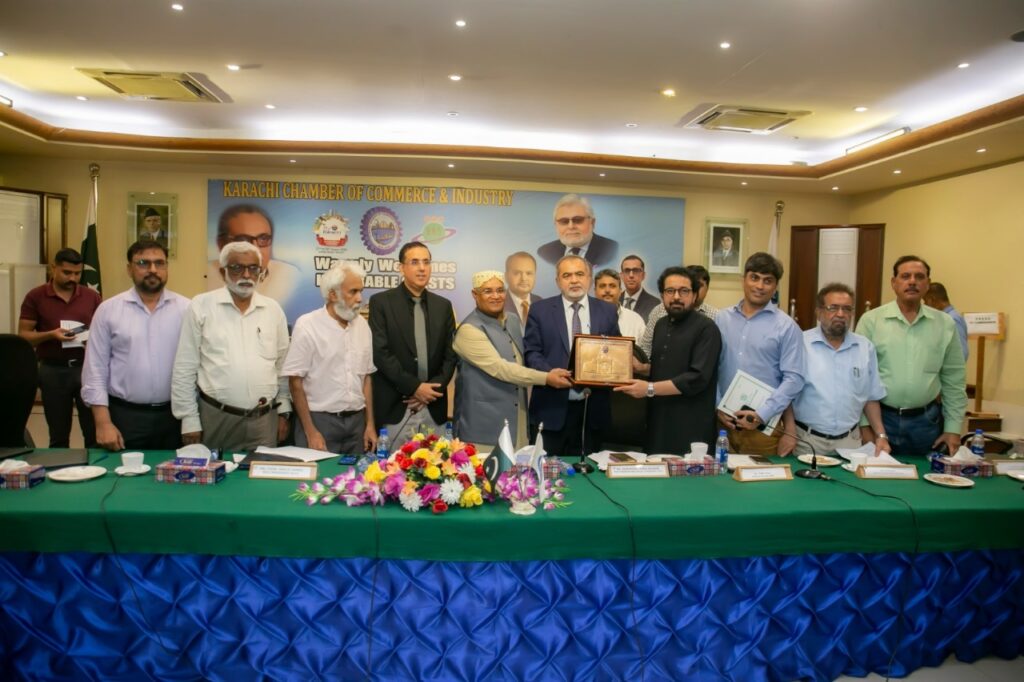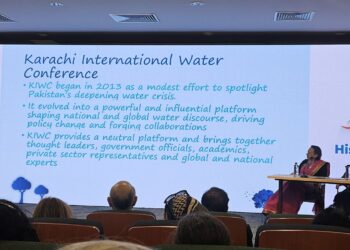strategic partnership with the KCCI under the
Benazir Hunarmand Program to equip
households with market-relevant skills
Staff Reporter

Karachi: The Benazir Income Support Program (BISP) Sindh has proposed a strategic partnership with the Karachi Chamber of Commerce & Industry (KCCI) under the Benazir Hunarmand Program, aimed at equipping low-income households with market-relevant skills and reducing dependency on cash stipends.
During a visit to KCCI on Monday, DG BISP Sindh Zulfiqar Ali Shaikh emphasized the need to establish a mechanism where the business community plays a key role in identifying labor market demands. “We want to ensure beneficiaries receive the right training, become employable, and ultimately self-reliant,” he said, highlighting the potential impact of a Memorandum of Understanding (MoU) between BISP and KCCI.
Bridging Welfare with Employment
The proposed collaboration would focus on:
- Identifying demand-driven skills
- Recommending certified training institutes
- Facilitating employment or self-employment for trained individuals
Additional Secretary BISP Dr. Tahir Noor, Outreach Consultant Naveed Khan, KCCI President Muhammad Jawed Bilwani, Vice President Faisal Khalil Ahmed, and former KCCI presidents were present during the discussion.
Dr. Noor shared that Rs 720 billion has been allocated to BISP this year, with Rs 13,500 being disbursed to women in eligible households. However, he stressed that with nearly 45% of the population living below the poverty line, sustainable solutions like skill development are essential. He credited Senator Rubina Khalid, Chairperson BISP, for launching the Benazir Hunarmand Program to help households transition from aid to employment.
“Participants will receive training tailored to market needs and starter kits to launch small businesses or gain employment,” Noor explained, adding that BISP needs KCCI’s help in ensuring that trainees are industry-ready.
KCCI Endorses Shift from Welfare to Empowerment
KCCI President Jawed Bilwani welcomed the initiative, voicing strong support for transforming beneficiaries into contributors to the economy. “We fully support this because it aims to break the cycle of poverty. Giving skills instead of permanent aid is the right way forward,” he said.
Bilwani also underscored the challenges facing Karachi’s industries, including energy costs, a shortage of skilled workers, and inconsistent policies. He assured KCCI’s cooperation in sharing industry insights, recommending credible training partners, and helping scale the pilot program across Karachi.
“This collaboration can have a multiplier effect—once a beneficiary becomes economically active, it uplifts entire communities,” he concluded.























